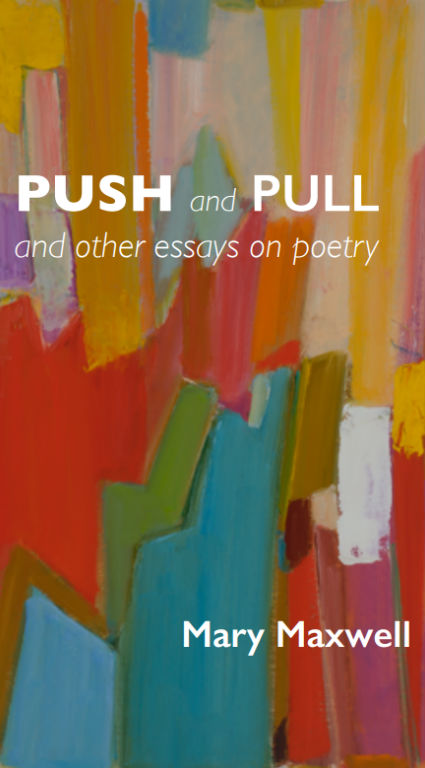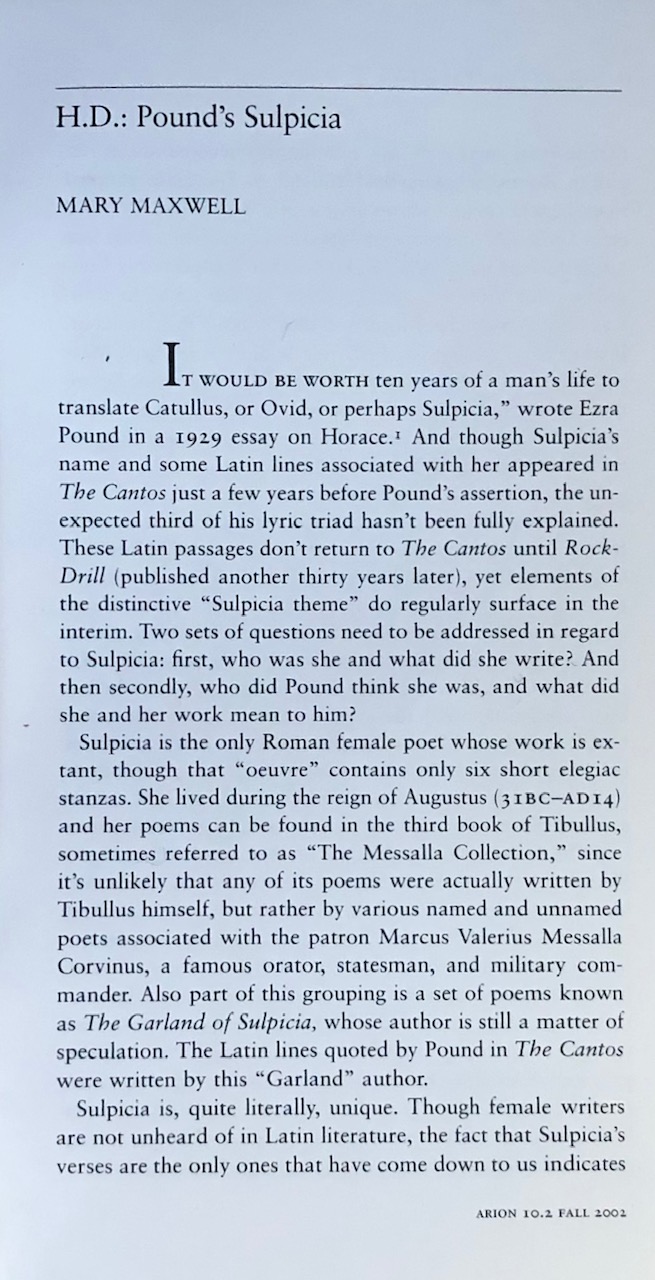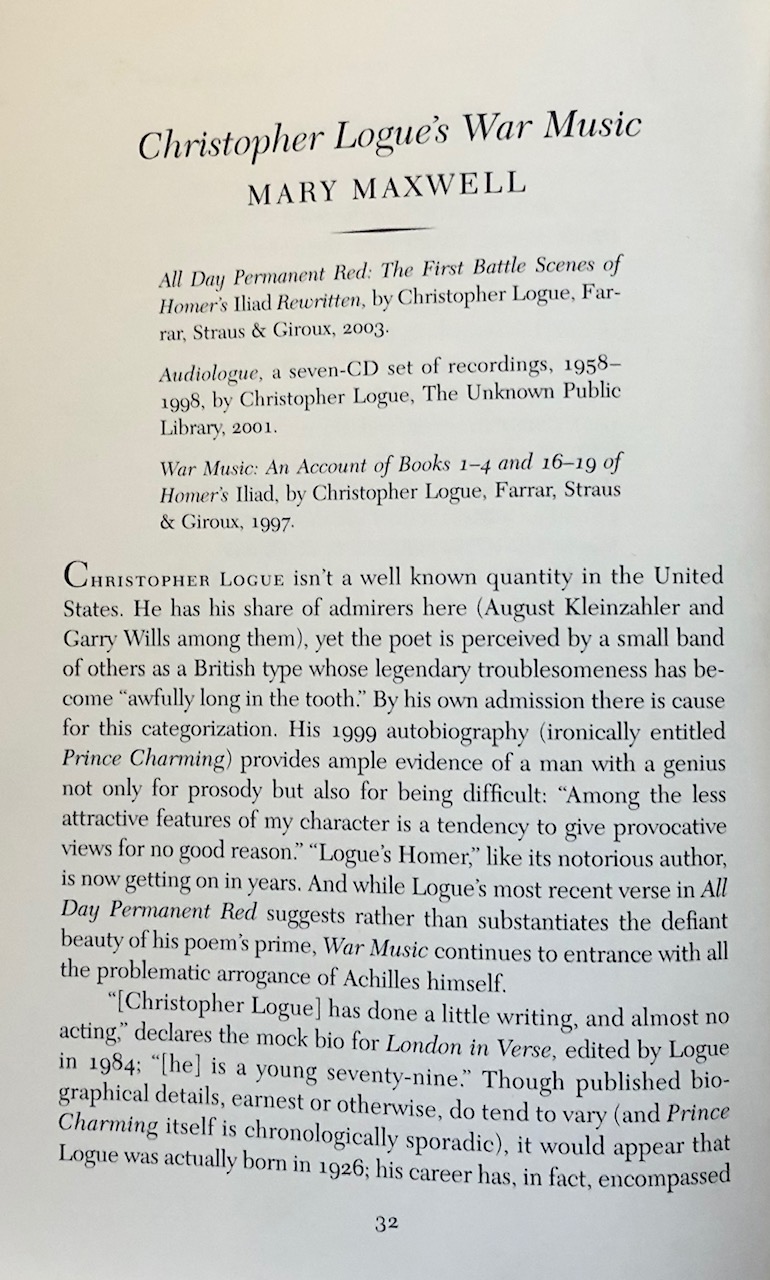Mary Maxwell’s long-awaited collection of essays includes pieces that first appeared in journals such as Arion, Boston Review, Literary Imagination, Partisan Review, Pequod, Raritan, Salmagundi, Yale Review and Vanitas. Some originated as talks given as an independent scholar at literary conferences, while others were written as enthusiastic responses to publications by colleagues such as Richard Howard, Cees Nooteboom and Gilbert Sorrentino.
The subject of poetic translation is one of the collection’s most recurring topics, with discussion of the classics (Homer, Ovid, Horace, Sappho and Dante) as rendered by contemporary poets (Christopher Logue, Daryl Hine, David Ferry, Jim Powell and Robert Pinsky) forming the book’s core. According to Maxwell, what is uniquely “brought over” by poets who translate is the prosodic embodiment of the lyric individual.
Maxwell’s gaze also regularly alights on the matter of canon revision, as the critic advocates the inclusion of undervalued women writers and artists such as Sulpicia, Beatrice of Die, Janice Biala, Serena Rothstein and H.D. Yet also brought to greater attention are the little-known poems of Edwin Denby, Jonas Mekas and Walter Benjamin.
One of the most important functions of criticism, Maxwell argues, is to reveal the intellectual and aesthetic dimensions of the art experience. Her collection’s opening salvo, “Push and Pull,” was inspired by the teachings of the painter Hans Hofmann. “The tradition,” as she writes, “must constantly be re-viewed in relation to the shifting cultural objects which put it into meaningful perspective; social and political agendas are often hidden but can usually be uncovered, with poignance and insight, by the sincere critic’s persistent prodding.”





